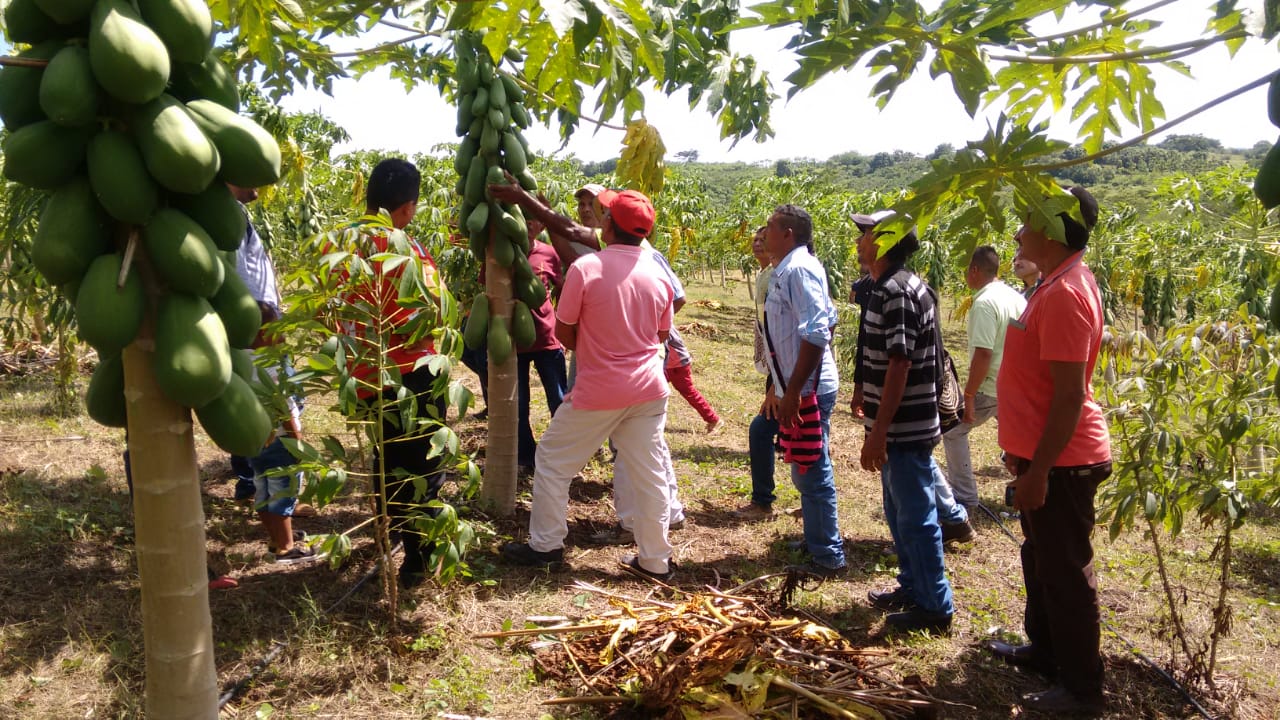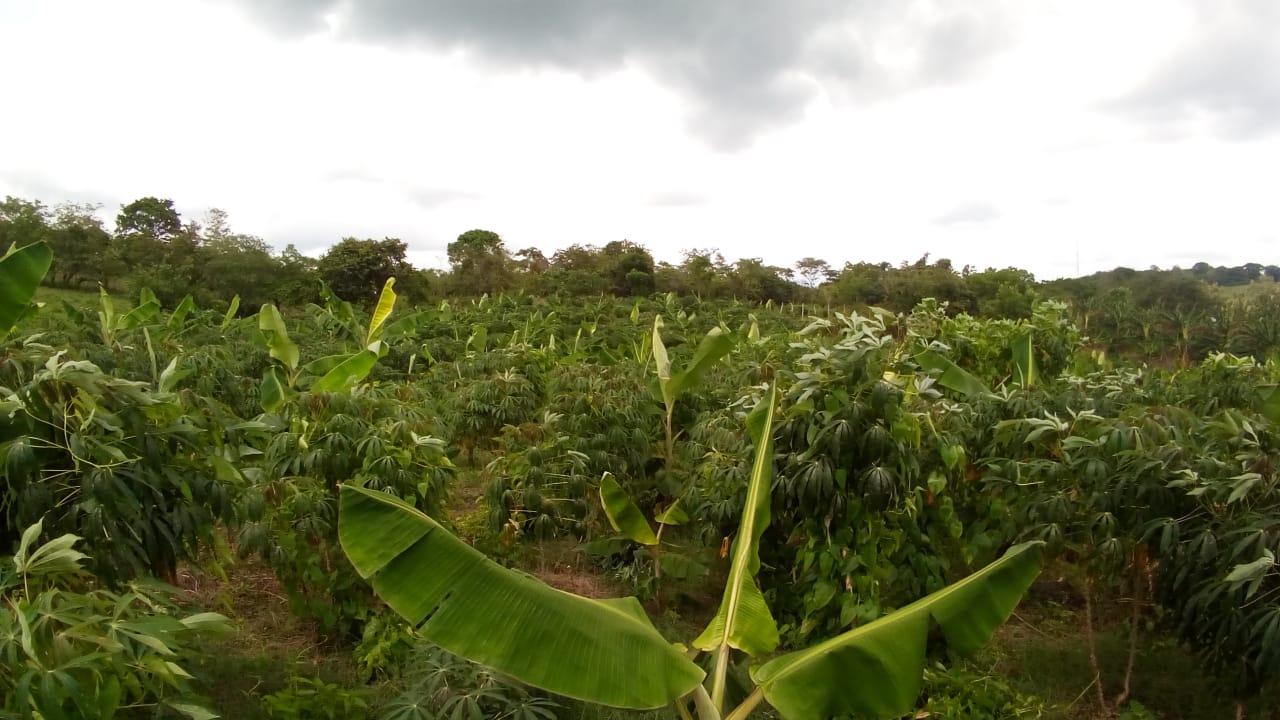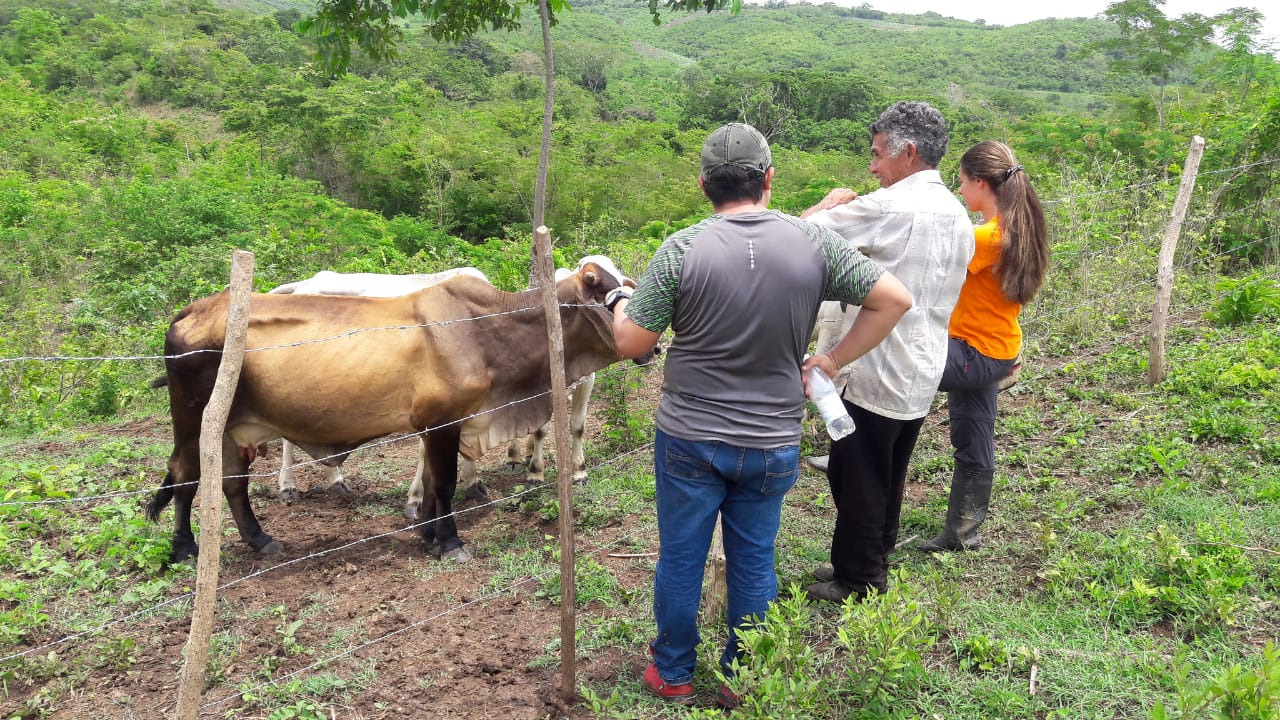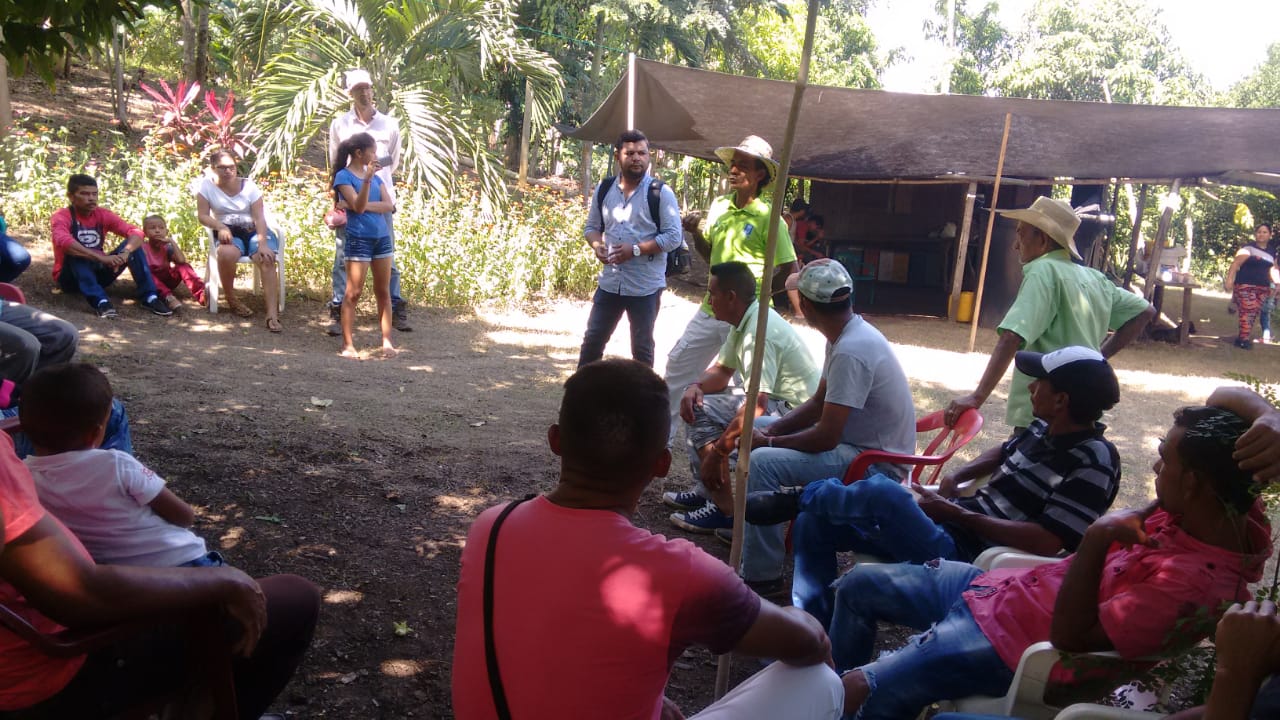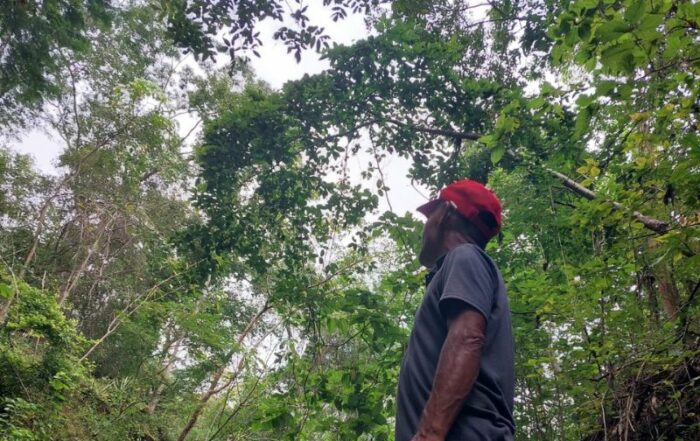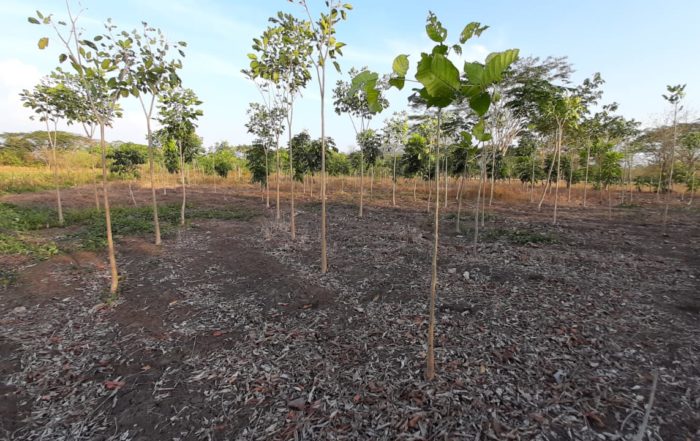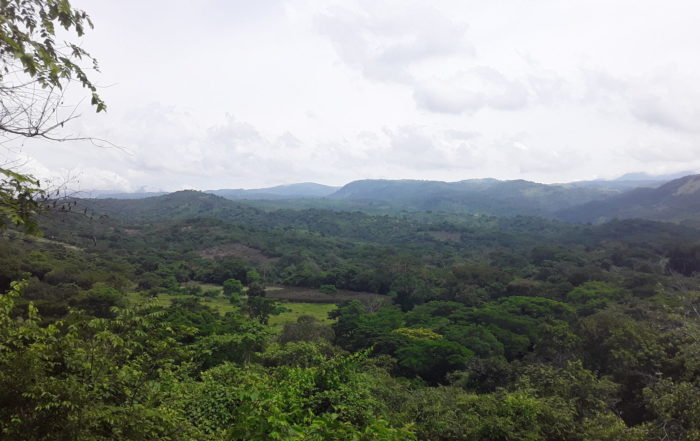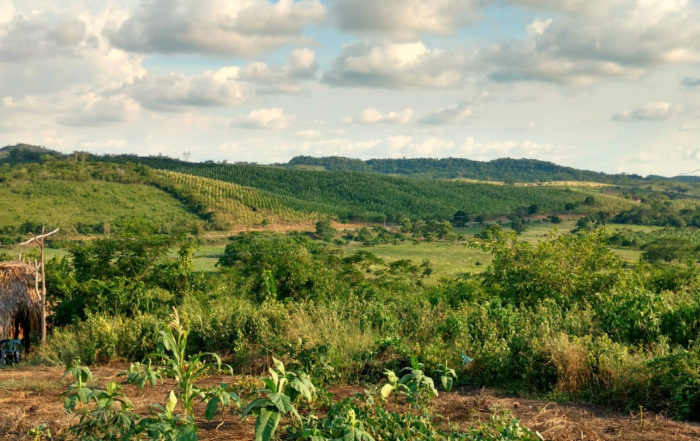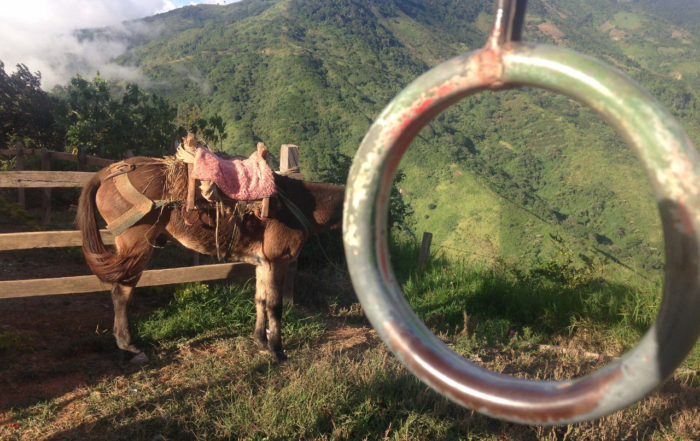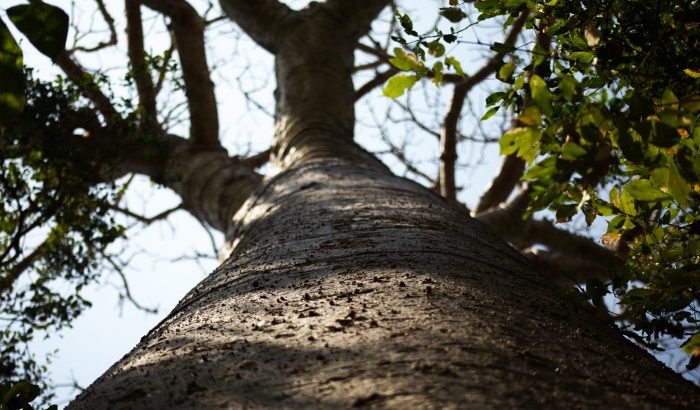The project developed in the María Mountains involves the development of Agroforestry Systems in order to put an end to the slash-and-burn practices as well as to the use of chemical pesticides.
It has developed in partnership with the PNUD Somos Rurales programme, an economic development project. Four nursery areas have been set up with around thirty beneficiaries to ensure agroforestry plantations on their plots.
Post-conflict issues
This region had long been a fruit and other produce area for Colombia. After the desertion of the area due to the internal armed conflict, the mountains naturally self-regenerated. Today, in a post-conflict context, people gradually resettle and re-appropriate the land.
Most of those former residents returning to their homeland are unfortunately launching into unsustainable farming. Indeed, due to a lack of means, re-establishing the fruit plantations they owned is complicated. As a result, the phenomenon of returning “home” becomes an important cause of deforestation in areas freshly restored during the desertion period. New agricultural practices are commercially associated with tobacco crops that require the use of petrochemicals.
Alternatives to unsustainable agricultural practices and mining jobs
The project seeks to develop sustainable agronomic alternatives, reverting to the original local production which was based on arboriculture. To preserve local culture and traditions.
